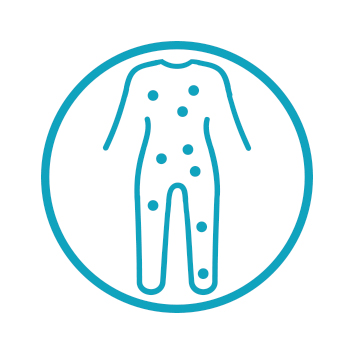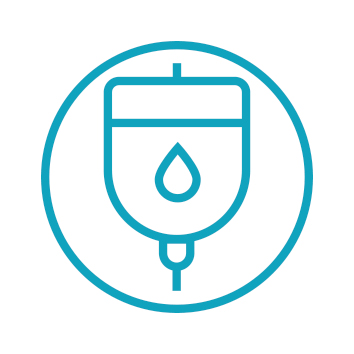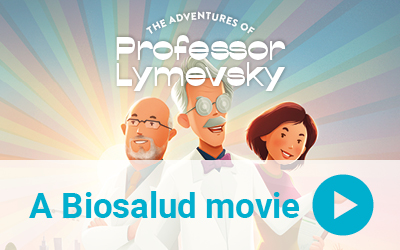What is ulcerative colitis?
Ulcerative colitis is an autoimmune, inflammatory, chronic disease of the large intestine. Specifically, it affects the part of the large intestine that runs from the anus, through the rectum, to its beginning, the cecum.
It is characterized by the aggression of the immune system against the mucous membrane of the colon that results in chronic inflammation of the intestine (colitis) that damages (ulcers) the intestine.
What are its symptoms?
This disease causes an inflammation that progressively ulcers the mucous membrane of the colon in such a way that it can produce obstructions and a lot of digestive discomfort, or abdominal pain, faeces with abnormal consistency, liquid or pasty and sensation of intestinal gas. In general, a significant discomfort in the digestive system.
Symptoms of ulcerative colitis

The symptoms of ulcerative colitis may vary, depending on the severity of the inflammation and where it occurs, and may also be intermittent. Doctors often classify ulcerative colitis according to its location.
The symptoms you may have if you have ulcerative colitis are:
- Diarrhea, often with blood or pus.
- Abdominal pain and cramps
- Pain in the rectum
- Rectal bleeding, with a small amount of blood in the faeces.
- Urge to defecate
- Inability to defecate despite the urge
- Weight loss
- Fatigue
- Fever
Diagnosis of Ulcerative Colitis

At Biosalud what we do is look for the origin of the disease. It is frequent to see patients with several intestinal infections or an increase in germs at the level of the terminal hilum and other times with reactivated pathology of the viral type that also presents a significant tiredness in the patient.
Due to the lack of definitive treatments in conventional medicine against this ailment, integrative medicine offers us the possibility of detecting the cause that really caused the autoimmune process and therefore, the possibility of treating it.
Treatment of ulcerative colitis

Biological medicine treatments are always based on regulating the immune system, deactivating the causes that have triggered the autoimmune process, and if necessary, treating the symptoms with anti-inflammatory enzymes. If necessary, a vaccine of regulatory t lymphocytes would be injected.
Increasingly, regenerative medicine can contribute to the regeneration of injured areas and is able to return to the status prior to the disease. With progressive assiduity, techniques that produce a regeneration of the tissue are beginning to be applied.
There are works and publications that support the use of mesenchymal stem cells to recover the ulcerated tissue and return the patient to his/her normalcy.
At Biosalud we have verified the convenience of colon hydrotherapy for the maintenance of the good functioning of the intestine. The technique consists of irrigating the intestine with filtered and ionized water at a controlled temperature.
Likewise, it will be necessary to control the diet and pay special attention to an individualized treatment in the diet.
If you want to request an appointment, please, phone us or fill the form and we will get in touch
The specialist answers
Does ulcerative colitis affect the whole intestine?
No, it only affects the part of the large intestine that goes from the anus, through the rectum, to its beginning, the cecum. The rest of the digestive tract is not affected by the disease, which differentiates ulcerative colitis from Crohn’s disease. However, colitis can have a significant impact on other parts of the body.
When will an outbreak of ulcerative colitis occur?
It is difficult to predict when a new outbreak of colitis will occur in the person who already has it.
Can pharmacological treatments eradicate ulcerative colitis?
No. In conventional medicine there is no definitive treatment for this ailment.
Why does ulcerative colitis occur?
The development of this disease in Spain and other industrialized countries is the result of genetic factors and environmental factors, as acknowledged by the president of the Spanish Society of Digestive Pathology (SEPD), Enrique Domínguez.
Stress, our diet and our lifestyle are environmental factors that can determine the appearance of ulcerative colitis. If we put these factors separately, they wouldn’t be a problem, but all of them together would.
Why does the autoimmune system make a mistake by causing a disease like ulcerative colitis?
Although its relationship to a particular microorganism has not yet been proved, the most logical option for colitis is for it to develop as a result of an infection, perhaps an unimportant one, but still causing the error in the autoimmune system.
At Biosalud, we always say that the cause comes from the intestine and we suspect that an infection like Lyme, which simulates other diseases, could be the reason. And Lyme disease does matter.
The genes on chromosome 6 that contribute to the constitution of the immune system have also been linked to ulcerative colitis. But something else has to initiate this disease and genetic predisposition alone is not enough.

